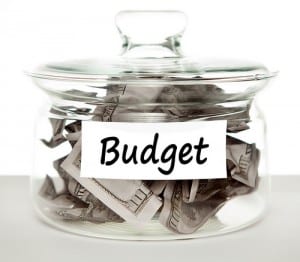
When your wallet is tight, it is time to scale back the budget. Fixed expenses are not the easiest to pare back on unless you downsize your home. Discretionary spending is the perfect place to start. There is a lot of wiggle room with money spent on costs above and beyond what you need to survive. With one significant change, a wallet will loosen up to a more comfortable spot. If several changes are made money worries will remain in the past.
Where can you make cutbacks to support a budget’s success?
Food costs – The amount spent at the grocery store along with dining out puts the food budget way over the amount it needs to be. A contributing factor is the habit of convenience. Whether the excuse be no time to plan or cook or just too tired by the end of the day fall back to convenient methods of pre-made foods. Whenever food is purchased ready to eat, you have paid for someone else to cook for your family. It’s an expensive and often tough habit to break.
Cell phones – These luxuries are often seen as necessities. If you truly don’t want to go without your cell phone, learn to negotiate a better plan. There are too many companies out there to settle with one high price plan. Just because you have been with your carrier for a long time, it doesn’t mean you have to stay there. The competition is fierce. There are companies that will pay your cancellation fee in order to give you a cheaper plan. Call your carrier and try to negotiate a lesser rate if you truly don’t want to change.
Utility programs – You have choices here too. Don’t let longevity keep you with a higher priced company. Many electric companies offer assistance to lower income households. There are also lower cost incentives when you make energy friendly upgrades to your home. There are some companies that will call and offer the program to you, but don’t wait on them. Call your utility companies and find out what programs you may be eligible for.
Insurance deductions – Set up a meeting with your insurance agent. Go through car, home, life and disability plans to find ways to cut back. If your car is older now, you may not need as much collision insurance. It is wise to have insurance policies, but you don’t have to waste money on something you no longer need.
Habits – If you drink alcohol or smoke, these vices not only affect your health but your budget as well. Live a healthy lifestyle and spend your money on fancy lattes or fancy frozen juice drinks? These costs add up over the course of a year. You can make a significant difference for your budget throughout the year.
Debt – The more long term debt you carry the more money you waste on interest. If you need to use credit cards, make sure you pay them off as soon as possible. The cards are a necessity to maintaining good credit. Don’t let the cost of interest tighten the noose on your wallet. It is the same for any alternative money as well. Payday loans or title loans may help in a pinch, but they squeeze any excess or much needed cash out of the budget. It is important to make cutbacks, even if they are temporary in order to keep bad debt out of the monthly budget pool.
Organize your budget. Make the effort to change the way you spend your money, even if it is only temporary. You will find that as you see progress you will want to make the change permanent.











